Managing the different stresses, strains and perceptions between personal relationships and business partnerships in a family (or value-driven) business can be challenging. It is not uncommon to find yourself stumbling through difficult times trying to clarify boundaries, manage different priorities and feeling slightly confused about why certain issues, sometimes apparently minor, are so tense or triggering for yourself or others.
That sense of confusion is a sign that there is something hidden, misunderstood or unexplored in the conflict that needs to be shared between family members, directors or executives. A critical issue, or more complex intersecting dynamics, are at play and some level of transformational change will likely be required by most of those involved in order to resolve these matters and move things forward.
Recognising the need for professional support can be a pivotal and positive step in navigating the complexities of relationships in a family business. In this blog, I’ll explore six common signs that indicate conflict skills coaching, independently facilitated analysis of conflict drivers or mediation may be your best next investment to end business and relationship stress.
1. Communication Woes
Are irritations and disagreements becoming predictable and more frequent? Do days pass with avoiding or deferring difficult conversations because it seems too hard? With the best of intentions, you feel repeatedly misunderstood. Recognising a breakdown in communication is the first step; knowing how to effectively raise your concerns and set up an environment for restoring good communication without defensiveness and fault-finding can be the challenge.
Conflict skills coaching can help you understand another person’s perspective on a communication problem and develop more successful responses.
Facilitated conversations or mediation can unveil underlying issues, clarify misinterpretations and personality differences and help rebuild the vital bridge of communication.
2. Trust on the Rocks
When trust is damaged, it feels like walking on eggshells. Mis-matched expectations about future decisions or division of responsibilities can lead to shattered trust. Hyper-aware that there has been a breach of boundaries, you may be constantly questioning the intentions of individuals, or worry about other alliances between family members. One party wants to just move on, the other continues to feel on-guard and highly stressed. Apologies often aren’t enough to re-set the scales and balance of trust and confidence.
Conflict skills coaching can help you to create a safe space to listen to hurt, explore breaches and work towards rebuilding the foundation of trust.
Facilitated conversations or mediation can help heal the compounded stress and discomfort when parties need to work together to heal from perceived or real breaches of trust
3. From Firm Foundations to Idealistic Innovators
The vision that crafted and developed a legacy business can seem at odds with, and dismissed by, the transitional strategies of a more risk-tolerant and innovative next generation. The long-term relationships that built a family business can feel disconnected and disrupted. It is less like passing on the baton and more like combatants for the passions of history or future business success.
Succession planning, just like the iconic tv show, can heighten everyone’s emotions, lead to alliances and divisions and sadly, end up in costly legal disputes.
If you’ve noticed growing tensions with different intergenerational visions for the family business, coaching can help reset the leadership compass in a clearer direction.
Facilitated conversations or mediation can guide parties to explore where there are shared values, valuable compromise and hidden opportunities to find solutions that have been lost in arguments.
4. Weathering Life’s Storms
Major life setbacks can strain even the strongest relationships. Sometimes there are competing or unspoken expectations of how these difficult situations should be managed. Often when personal setbacks impact how well a person can engage with running the business, the risks of resentment and blame substantially increase.
Conflict skills coaching can equip you with the tools and practices to navigate stormy times together, rather than divided, emerging stronger on the other side.
Facilitated conversations or mediation can guide parties to better understand the cascading consequences of these difficult situations, increasing empathy and appreciation of the impacts for all.
5. Bringing Business Home
Giving more attention to your work rather than time for your partner? It might seem reasonable that your long hours and preoccupation with business stress should be tolerated by your spouse, for the greater good that will come in a few years’ time. It is much more likely that the increasing emotional distance and resentment with running family life solo will erode that goodwill and put your relationship at risk. How many people do you know who built a successful business only to divide their assets in an unwanted, unexpected divorce?
Sometimes relationship or couples counselling may be the very best strategy to resolve tensions between being married to work and feeling un-married at home. You can find more about Gottman Method Couples Counselling, the gold standard for couples therapy, [here]. Investing in your marriage may be your first priority, but it may also mean negotiating boundaries with others in the family business.
Conflict skills coaching can help you guide conversations when expectations and responsibilities need to change to protect you and your partner from an unreasonably intrusive workload.
Facilitated conversations or mediation can guide parties in the family business to re-examine the roles and processes, expectations and values, future-proofing the business.
6. Navigating External Relationships
Relationships extend beyond the business environment, involving friends, spouses, blended and extended family, stakeholders and other connections. These relationships might sometimes be unhealthy, with unreasonable demands, boundaries being crossed and ongoing conflicts disrupting your own relationships. Changes in external relationships, finances or navigating new roles present unique hurdles for family businesses.
Conflict skills coaching aids in setting healthy boundaries and addressing external tensions that may be affecting business relationships.
Facilitated conversations or mediation provides a platform to expiore how external factors and disruptions are experienced by different people in the business and establish a shared identity and common plan in an evolving business environment.
Conclusion
Your personal, family and business relationships are all interconnected. Business success and a fulfilling family life are built on strong interpersonal and conflict resolution skills, stress management and the ability to maintain clear work-life boundaries.
Bringing in a conflict resolution professional in the life journey of family business isn’t an admission of defeat; rather, it’s a courageous step towards building stronger, healthier connections and shared vision. By recognising the signs and seeking professional guidance, family businesses can find their way back to more resilient relationships and a happier, more satisfying business.
If any of these signs resonate with you, know that you’re not alone, and help is available to guide you through the path of renewal and growth. I’m here to help you tip the work-life relationship balance in your favour! If you’d like to talk to someone about your relationship struggles, you can call me on 0404 032 636 or make an appointment online today.
Elizabeth Williamson is a conflict consultant and trainer specialising in workplace and personal conflicts with over 35-years of professional experience. She specialises in building resilient relationship and conflict resolution skills for work and personal life.
She is an Accredited Mediator, Accredited Mental Health Social Worker, relationship and conflict skills coach, couples therapist and training consultant.


